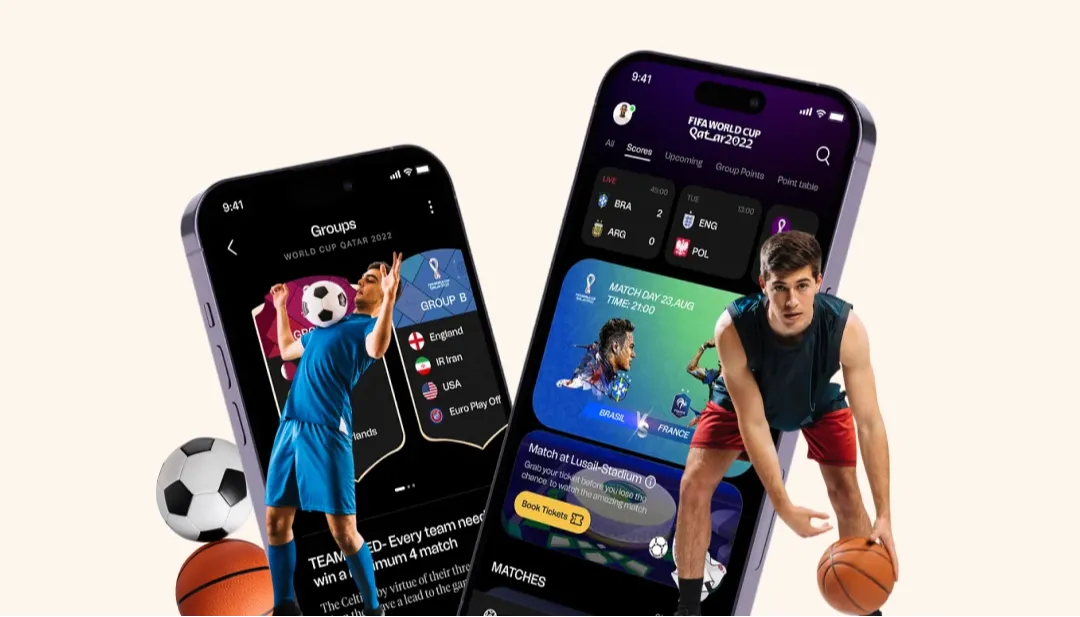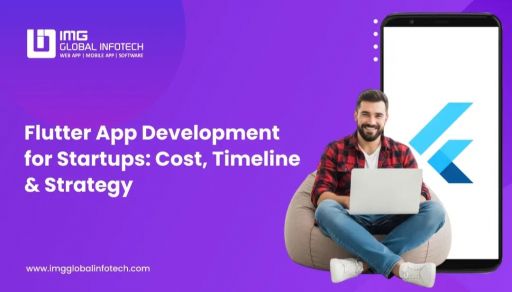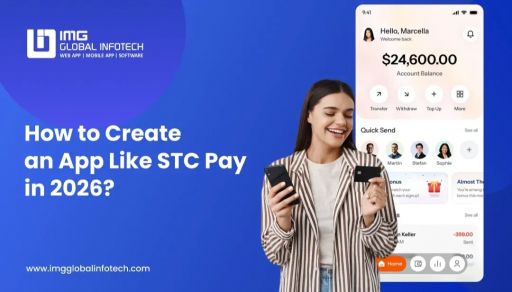How To Develop An App Like Dream11: Ultimate Guide & Insights
Dipti Singhal
Jul 21, 2025

The way fans interact with their favorite games has changed as a result of the popularity of fantasy sports in India. Millions have gone from being merely spectators to taking on the role of virtual team owners, planning strategies and vying for prizes in real time. Dream11, a unicorn and pioneer in India's fantasy sports market with over 180 million users, is leading this revolution.
Many entrepreneurs and startups are keen to duplicate Dream11's success as the industry grows. However, creating a fantasy sports app from the ground up calls for more than just an idea; it also calls for meticulous preparation, technical know-how, and a thorough comprehension of the gaming and sports industries.
This blog delves deeply into the fantasy sports app development in India, examines the factors that made Dream11 a market leader, and offers a step-by-step guide to creating your own fantasy app, covering everything from UI/UX design and backend development to legal compliance, monetization models, and marketing tactics. Whether you're a tech enthusiast or an aspiring founder, this guide provides helpful advice on how to make your ideal sports app a reality.
How Does the Dream11 Business Model Work?
The foundation of Dream11's business strategy is a framework for legally compliant fantasy sports and astute monetization techniques. However, how precisely does it produce income? Users' entry fees to paid contests provide the main source of revenue. A percentage of these fees is kept by Dream11 as a service charge. Multiple profit channels are created by brand partnerships with sports leagues, franchises, and influencers as well as additional revenue generated by app advertisements.
Why is the Dream11 platform interesting? It's the structure of fantasy sports, where users build virtual teams based on actual players who will be competing in future games. User choices are skill-based rather than luck-based because these teams compete in leagues or tournaments where performance is assessed using a point-based scoring system linked to real player statistics.
Is Dream11 permitted in India? Yes, and that's because it's categorized as a skill-based game. Fantasy sports like Dream11 have been accepted as legitimate under this heading by the Indian judiciary, including the Supreme Court. By avoiding operations in states where such platforms are prohibited and guaranteeing safe, transparent gameplay, the company strictly complies with the law. Dream11 has an advantage in the rapidly expanding fantasy sports market thanks to this legal basis.
Why Is Market Research and Opportunity Analysis Crucial in 2026’s Competitive Business Landscape?
These days, market research and opportunity analysis are essential tools for businesses trying to stay ahead in today's rapidly evolving market. But why are they so crucial in 2026? Making informed decisions in the face of intense international competition, shifting digital habits, and AI-driven consumer trends requires real-time insights. For instance, only precise data and market-driven tactics can optimize the benefits of developing a fantasy sports app, such as high user engagement, monetization potential, and brand visibility.
Key points to understand:
-
Consumer Trends Monitoring: Platforms like Google Trends, Statista, and Nielsen help identify what products or services are in demand—right now.
-
Competitor Analysis: Real-time tools like SEMrush or SimilarWeb let you track competitor moves, revealing gaps you can fill.
-
Target Audience Segmentation: Using CRM data or tools like HubSpot, you can understand demographic and behavioral shifts more accurately.
-
Risk Mitigation: In-depth research prevents blind investments by identifying potential threats or saturated markets.
For instance, industries such as AI healthcare tools and sustainable packaging saw 35%+ YoY growth worldwide in Q2 2026 (Source: McKinsey Insights). This demonstrates that having access to real-time market data is crucial for launching the appropriate product at the appropriate moment. Companies that spend money on research are not merely responding to trends; they are establishing them.
What Are the Key Features That Make a Dream11-Like App Successful in 2026?
Given how popular fantasy sports are becoming—Dream11 alone is expected to have over 180 million users by 2026—it's critical to comprehend the key components that contribute to these apps' profitability and user engagement. Here's what really counts, regardless of whether you want to create your own fantasy sports app or are just interested in how these sites operate:
-
User Registration & Profile Management – Secure login with email, phone, or social platforms ensures smooth onboarding.
-
Live Match Integration – Real-time data APIs allow live score updates, match stats, and player points syncing.
-
Create & Join Contests – Users must be able to join public or private contests and create their own leagues with flexible entry fees.
-
Fantasy Team Creation – Drag-and-drop player selection with point caps makes team creation fun and strategic.
-
Secure Payment Gateway – Seamless and secure deposit/withdrawal via UPI, cards, and wallets builds trust.
-
Push Notifications – Real-time updates on team performance, contest results, or match start times increase user engagement.
-
Admin Panel – A robust backend for managing matches, users, earnings, and fraud control.
In 2026, integrating AI-based player suggestions, blockchain for transparency, and multi-sport options has become standard to stay competitive. Building a Dream11-like app isn’t just about fantasy—it’s about delivering a dynamic, data-driven user experience.
How Does the Dream11 App Architecture Power Real-Time Fantasy Sports?

Over 180 million users can enjoy secure gameplay, high scalability, and real-time performance thanks to Dream11's app architecture. However, what constitutes its technical robustness?
Dream11's architecture is fundamentally microservices-based; independent services manage each function, such as team formation, user authentication, and real-time score updates. To guarantee low-latency responses during peak match times, these services communicate via REST APIs and message queues (such as Kafka).
WebSocket protocols are utilized for real-time data handling, particularly during live matches, to provide instantaneous updates on player rankings, scores, and points. Redis caching and MongoDB/PostgreSQL enable quick data retrieval and persistence.
To handle high traffic, particularly during the IPL or World Cup seasons, the application uses cloud infrastructure (AWS or GCP) with auto-scaling. Even in tier-2 cities, a CDN (Content Delivery Network) guarantees quick content delivery, cutting down on latency.
OAuth 2.0, SSL encryption, and payment gateways like Razorpay are used to enforce security and ensure smooth transactions.
Dream11 is one of India's most technically sound fantasy platforms thanks to its architecture, which combines state-of-the-art backend frameworks, front-end responsiveness (React/Flutter), and continuous monitoring tools like Prometheus and Grafana.
What Is the Process of Developing a Fantasy Sports App in 2026?
Real-time events like the ICC Champions Trophy and IPL-style leagues around the world are driving the growth of fantasy sports apps in 2026. However, how are these apps constructed? This is a detailed guide to developing a fantasy sports app that will guarantee your platform can manage real-time statistics, user requests, and scalable revenue.
-
Market Research & Idea Validation: Start by analyzing current trends, user behavior, and popular sports (cricket, football, kabaddi) using tools like Google Trends or App Annie.
-
Feature Planning: Prioritize core features like user registration, real-time match data integration (via sports APIs), team creation, contests, and leaderboards.
-
UI/UX Design: A clean, intuitive design boosts engagement. Use Figma or Adobe XD to create responsive mockups tailored for Android, iOS, and web.
-
Backend Development: Developers use Node.js, Firebase, and MongoDB for secure and scalable infrastructure.
-
API Integration: Integrate real-time data feeds (e.g., SportRadar, CricAPI) to update scores, player stats, and contest results instantly.
-
Testing & Deployment: Perform rigorous QA testing before launching on Play Store, App Store, or web.
With real-time performance and high competition, building a fantasy sports app today demands precision, smart APIs, and audience-centric innovation.
What Are the Legal & Compliance Aspects You Must Know Before Developing a Fantasy App?
When developing a fantasy sports app in India, legal and compliance aspects play a critical role in ensuring your platform operates within lawful boundaries. Is fantasy sports legal in India? Yes, but only as a game of skill—per the Supreme Court and several state High Courts. However, states like Telangana, Andhra Pradesh, Assam, and Odisha still prohibit real money gaming, making geo-restrictions essential in your app.
Key legal checkpoints include:
-
Gaming License: Apply for a gaming license or registration under the Public Gambling Act or state-wise equivalents.
-
GST Compliance: Real money gaming platforms must adhere to GST at 28% on the total contest entry amount, as per the 2023 GST Council decision.
-
Terms & Conditions: Draft clear T&Cs, privacy policies, and disclaimer notices to avoid legal disputes.
-
Age & KYC Verification: Include PAN-based KYC and restrict users below 18 to ensure regulatory compliance.
Ignoring these compliance requirements can lead to app bans or financial penalties. Collaborate with legal experts early in development to ensure your fantasy app is legally sound and future-ready in 2026’s evolving digital ecosystem.
How Much Does It Cost to Build a Dream11-Like App in 2026?
Building cost of a fantasy app like Dream-11 in 2026 depends on features, platform choices, and development scale. Here's a breakdown based on real-time market trends:
1. Basic Version (₹4–6 Lakhs)
Ideal for startups, this version includes core features like user registration, team creation, live score updates, admin panel, and payment integration. The UI/UX will be simple, and usually developed for one platform (Android or iOS).
2. Mid-Level App (₹6–10 Lakhs)
This includes cross-platform support (Android & iOS), smoother user interface, push notifications, referral systems, and advanced APIs for real-time score and fantasy points tracking. Security and scalability are also improved.
3. Advanced, Scalable App (₹10–20 Lakhs)
A feature-rich platform with live streaming, multi-game support (IPL, football, kabaddi), AI-based predictions, real-time analytics, custom contests, and a high-end tech stack. Ideal for companies targeting a large user base and long-term growth.
What Is the Revenue Model of a Fantasy Sports App in 2026?
The revenue model of a fantasy sports app in 2026 revolves around a mix of proven strategies and evolving monetization trends. With platforms like Dream11, MPL, and My11Circle witnessing exponential growth—Dream11 reportedly crossed ₹6,000 crore in revenue in FY23—the financial potential is immense.
Key Revenue Streams:
1. Entry Fees & Contest Commission – The core model: users pay entry fees to join leagues. The app deducts 10–20% as platform commission from total pools.
2. In-App Ads & Sponsorships – With millions of daily active users, brands pay premium for ad slots, banners, and video promotions.
3. Premium Subscriptions – Many apps offer insights, player analytics, or ad-free experiences as paid upgrades.
4. Brand Partnerships & Licensing – Collaborations with leagues, teams, and sports influencers enhance app visibility and generate licensing income.
5. Merchandise & Affiliate Marketing – Some platforms now push team kits, accessories, and affiliate sports products.
The top fantasy cricket apps and other sports align with major events like IPL 2026 and ICC Champions Trophy 2026, apps are leveraging real-time engagement and gamification to boost user retention and revenue. A scalable, multi-channel revenue model is key for long-term profitability.
How Can You Effectively Monetize and Scale Your Digital Product in 2026?
In 2026, effective monetization and scaling strategies are critical for transforming a digital product from a prototype into a profitable business. But how can startups and product owners achieve this in today’s fast-evolving digital landscape?
Start by identifying the right monetization model:
-
Freemium (popular among SaaS tools like Notion and Canva) gives basic access with paid upgrades.
-
In-app purchases and subscriptions remain dominant for mobile apps, especially in gaming and fitness sectors.
-
Ad-based models, though competitive, still offer great returns if user engagement is high (think YouTube or free news apps).
For scaling, real-time performance tracking and automation are key. Use tools like Firebase, Mixpanel, or Amplitude to analyze user behavior. Implement cloud scalability solutions (like AWS Auto Scaling) to handle growing traffic smoothly.
Key Tips:
-
Use A/B testing to optimize revenue streams.
-
Integrate with global payment systems for wider reach.
-
Focus on user retention metrics (DAU/MAU ratio, churn rate).
-
Collaborate with influencers or affiliate networks for rapid market growth.
With over 5 billion active internet users in 2026, now is the time to act smart. Monetize strategically and scale sustainably to win the digital race.
What Are the Common Challenges in Fantasy App Development Today?
It takes more than just coding to create a fantasy sports app in 2026; you also need to provide scalable, real-time, and legally compliant platforms. Real-time data integration, where player stats and live scores must instantly and without delay sync, is one of the most difficult tasks. User engagement is another important concern; in order to keep users on an app, gamification, rewards, and a seamless user experience are necessary. In nations like India, licensing and legal compliance are becoming increasingly stringent, particularly in light of the 2023 rules pertaining to skill-based gaming. If not supported by a strong backend, high server loads during important events like the IPL or ICC tournaments can cause the server to crash. Finally, user experience must be balanced when using monetization techniques like in-app purchases or ad placements. It takes a combination of solid backend technology, careful planning, and in-depth knowledge of current trends in the fantasy sports market to overcome these obstacles. A trustworthy fantasy app development business can guide you through these changing obstacles.
What Are Real-Time Data & API Providers and Why Do They Matter?
In sectors like finance, sports, weather, logistics, and more, real-time data and API providers are essential for providing timely, accurate information. However, what precisely do they do? Through APIs (Application Programming Interfaces), these providers provide live data feeds that give apps and businesses access to real-time data. Real-time APIs enable everything from live traffic updates to cricket scores to stock market fluctuations.
Key points to understand:
-
Speed & Accuracy: Real-time APIs update data in milliseconds.
-
Use Cases: Ideal for fantasy sports apps, trading platforms, IoT devices, and live dashboards.
-
Integration: APIs allow seamless connectivity between your app and live data sources.
-
Scalability: Real-time data systems can scale based on traffic demands.
In today’s data-driven landscape, choosing the right real-time data provider ensures a smoother, smarter user experience.
How Long Does It Take to Develop a Dream11-Like Fantasy Sports App?
A Dream11-like app's development time usually takes three to six months, depending on its features, complexity, and level of customization. While a full-fledged app with AI, real-time analytics, and live score integration might take 20–24 weeks to develop, a basic version with standard fantasy league features can be completed in 8–10 weeks. UI/UX design, backend development, API integrations, testing, and deployment are important phases. Now is the ideal time to launch and take advantage of growing user engagement because of forthcoming events like the ICC Champions Trophy 2026. Early entry into the expanding fantasy sports market is ensured by rapid development.
What Are the Future Trends in Fantasy Sports App Development?
Real-time data integration, AI-powered personalization, and AR/VR gaming experiences are shaping the future of fantasy sports app development. With more than 200 million users worldwide, there is a growing need for platforms that are quicker and more engaging. In order to ensure fair play and secure transactions, developers are now concentrating on blockchain-based transparency. Casual gamers are also being catered to by the growth of prediction-based models and micro-contests. Real-time APIs are becoming indispensable for automated team recommendations, player injury notifications, and live match data. In order to reach tier-2 and tier-3 cities, Indian fantasy football, cricket, and kabaddi apps are implementing voice search capabilities and regional languages. Low-latency gaming and real-time interactions will revolutionize user engagement as 5G connectivity grows. With monetization through NFTs, subscriptions, and branded content, fantasy apps will develop into multi-sport, community-driven ecosystems by 2026 and beyond, guaranteeing increased revenue growth and user retention.
How to Choose the Right Fantasy App Development Company in 2026?
Choosing the right fantasy app development company in 2026 requires more than just a Google search. With India’s fantasy sports market expected to cross ₹54,000 crore by 2027, selecting an experienced and innovative development partner is crucial. To truly succeed, you need to hire a fantasy sports app development company that understands real-time scalability, user engagement, and monetization strategies. Look for a company with proven expertise in building apps like Dream11, Vision11, or MPL. Key points to consider include:
-
Experience in fantasy sports logic & real-time gameplay
-
Custom UI/UX design for user retention
-
Live API integrations for cricket, football & kabaddi
-
Scalable backend with secure payment systems
-
Portfolio with real-time success metrics and reviews
Also, check if they provide post-launch support, data analytics features, and comply with legal gaming norms. A strong development company will help you launch on time, scale during IPL or World Cup, and compete with trending apps in the market.
Conclusion
In a market that is expanding quickly and is highly competitive, the success of your gaming platform can be determined by selecting the best fantasy app development company. Users in 2026 will expect secure gameplay, faultless user interface, and real-time performance—features that can only be provided by a talented and experienced development team. Technical know-how, industry experience, portfolio, and post-launch support are all evaluated to make sure your app not only launches successfully but also flourishes during popular events like international cricket tournaments or the IPL. Make wise partnerships to make your fantasy sports concept a profitable, scalable business.
-
 Top 5 AI Applications Every Business Needs in the AI in Retail Industry
Top 5 AI Applications Every Business Needs in the AI in Retail Industry
-
 How Much Does It Cost to Build a Medical Appointment App Like Doctolib?
How Much Does It Cost to Build a Medical Appointment App Like Doctolib?
-
 Flutter App Development for Startups: Cost, Timeline & Strategy
Flutter App Development for Startups: Cost, Timeline & Strategy
-
 Step-by-Step Guide to Developing an App Like STC Pay
Step-by-Step Guide to Developing an App Like STC Pay
-
 Importance of Professional Ecommerce Website Development for Startups
Importance of Professional Ecommerce Website Development for Startups
-
 How to Build A Premium Grocery App Like Kroger?
How to Build A Premium Grocery App Like Kroger?
Dipti Singhal is a skilled Content Writing Specialist at IMG Global Infotech, with strong expertise in creating engaging, SEO-optimized content for various industries. She focuses on blending storytelling with effective keyword strategies to help businesses connect with their audience and improve their online visibility. Passionate about delivering high-quality content that drives real results, Dipti plays an essential role in strengthening the company’s digital presence.












